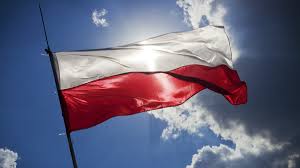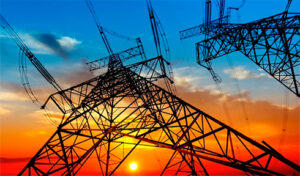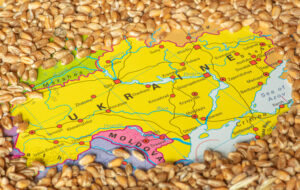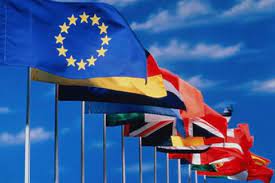
The Interdepartmental Commission on International Trade (ICIT) has initiated a review of safeguard measures on imports of cut fresh roses to Ukraine, regardless of the country of origin and export, due to the expiration of the measures.
As stated in the decision of the ICIT dated April 12, which came into force on April 17 and was published in the Uryadovy Courier newspaper, Ascania-Flora LLC proposed to extend the special duty on imports of roses to Ukraine introduced three years ago: the duty rate in the first year of its validity was 56%, in the second year – 44.8% and in the third year – 35.84%.
The Ministry of Economy provided the results of consideration of this appeal, according to which the application of safeguard measures had a positive impact on the activities of the domestic producer, but did not fully eliminate the consequences of the damage caused to it.
The ICIT concluded that Ascania-Flora’s application contained sufficient information to indicate that the domestic producer was in the process of adapting to the conditions of competition.
Thus, the ICIT decided to review the safeguard measures on imports of fresh roses (UCG FEA code 0603 11 00) and their exports to Ukraine and entrusted it to the Ministry of Economy.
As reported, the ICMT’s decision of April 16, 2021, to impose a special duty on the import of roses was published in the Uryadovyi Kurier newspaper on April 21 of that year and entered into force 30 days after the date of publication.
According to the State Statistics Service, in January-February of this year, Ukraine imported 470.08 thousand pieces of cut roses, or 20.6 tons, worth $149 thousand. The main supplier of them is Ethiopia – 392.43 thousand pieces for $2103.5 thousand.
In turn, Ukraine exported 72.65 thousand roses worth $50.7 thousand to Lithuania and Moldova in two months.

It is advisable for Poland to maintain the blockade on Ukrainian grain imports, but transit should be allowed when transshipment capacities are free in Polish ports, President of the Grain and Feed Chamber of Poland Monika Pątkowska said in an interview with farmer.pl.
“Today it would be better if the blockade of grain imports is maintained, and when it comes to transit, we could implement it to some extent and thus help Ukraine when we have free handling capacities in Polish ports,” she said.
Pętkowska noted that Polish ports were not 100% loaded in the first quarter of 2024.
“We have to conclude that our port infrastructure, but also the railroad infrastructure is inefficient. Now is the right time to expand it. I believe that we slept through the last two years in this context. Romania has received funds from the European Union and is expanding its infrastructure, while Poland has not done it so far,” the public figure emphasized.
She is sure that Poland should show both Ukraine and the international community that it wants to help effectively but, on the other hand, firmly protects the interests of the Polish farmer. These two goals, in her opinion, should be combined.
“The sooner we come to a mutual understanding, the sooner we develop mechanisms, the less complicated will be the atmosphere that may hinder our broader cooperation not only with Ukraine, but also in the European arena,” summarized the president of the Polish Grain Chamber.

JSC Energy Company of Ukraine (ECU) is increasing electricity imports from the EU to compensate for losses in the Ukrainian power grid due to hostile attacks. Starting from mid-March, the daily volume of imports by the state-owned trader has increased by an average of 2 times.
The company continues to import electricity from Slovakia and Romania, and in March it also started supplying electricity from Hungary. Today, the company is the second largest importer of electricity in Ukraine.
“Over the past two years, Ukraine, together with the EU, has significantly increased its technical and organizational capabilities for electricity imports, which now plays a crucial role in the stable energy supply of consumers,” said Vitaliy Butenko, CEO of the Energy Company of Ukraine. “Given the continuing massive attacks on energy facilities, the Government of Ukraine continues to actively cooperate with European partners to obtain additional import opportunities.
Reference
Energy Company of Ukraine (ECU) is a national energy trading company that offers comprehensive solutions for the purchase, sale and management of energy resources. The company was established in 2022 without attracting or transferring state assets or property. Revenues are generated by high-tech trading products and instruments.
The company is one of the TOP-5 traders in Ukraine in terms of electricity sales, a leader in cross-border energy trading, and a TOP-2 trader of green electricity.
The company established the first state-owned balancing group of electricity market participants, which is now the second largest in Ukraine. The company’s customers generate 10% of Ukraine’s GDP. The company is 100% owned by the state.

The Hungarian government will impose additional restrictions on imports of agricultural products from Ukraine to protect Hungarian farmers, the Associated Press reported on Thursday, citing a statement by Agriculture Minister István Nagy.
“The European Union’s decision to allow duty-free imports of goods from Ukraine in 2022 to help its economy stay afloat has led to a large oversupply and low prices on the European agricultural market,” Nagy said at a press conference.
Speaking about the planned new measures against Ukrainian products, the minister explained that the restrictions will now also include processed grain products.
He pointed out that officials in Brussels, in Budapest’s view, ultimately failed to protect European farmers who are unable to compete with cheap Ukrainian goods, and noted that this is why Hungary will introduce additional restrictions at the national level.
Last year, Hungary imposed a ban on the import of 24 Ukrainian agricultural products. The ban applies to grain, flour, vegetable oil, some meat products and other goods. Transit was not affected by this measure.
In March, an agreement on the temporary suspension of import duties and quotas on Ukrainian products entered into force in the EU, the agency said.

The EU countries have not yet been able to agree on the upper limit of duty-free imports of Ukrainian grain, as well as the need to extend restrictions to other products from Ukraine, the German edition of n-tv reported. “In the debate on the upper limit of duty-free imports of Ukrainian grain, the 27 EU countries continue to disagree,” the publication said.
The German media cite information from European diplomats who say that there is also no clear majority among member states on the European Parliament’s proposal to extend the restrictions on poultry meat, eggs and sugar from Ukraine proposed by the European Commission in January.
Polish Radio’s correspondent in Brussels, Beata Plomecka, also confirmed that the European Parliament, influenced by farmers’ protests across Europe, last week backed an amendment to the regulation on Autonomous Trade Measures submitted by Polish MEP Andrzej Galicki.
MEPs agreed to impose import restrictions on sensitive goods, notably honey, a range of cereals, poultry meat, chicken eggs and sugar.
Poland is also lobbying to tighten import quota requirements for Ukrainian sensitive agri-commodities by using data on Ukrainian imports not only for the years 2022-2023, but also 2021, before Russia’s full-scale invasion, when there were no massive shipments of agricultural products from Ukraine.
“However, this support is absent among member states. Only Poland and the ‘frontline’ countries are demanding that the demands of the European Parliament be taken into account. At best, most countries want to reduce from three weeks to two the Commission’s mandate to impose a ban on EU imports of products whose imports destabilize the market situation,” Polish Radio stressed.” Negotiations on a possible restriction of imports of Ukrainian agricultural products in the European Council are scheduled for Tuesday evening.
As reported, in many EU countries since January 2024 there have been mass protests of farmers, who express dissatisfaction with the “green” course of the European Commission and the rise in the price of material and technical resources. One of their demands is to strengthen control over alleged unfair competition from Ukraine. Farmers claim that Ukrainian products that were once destined for Africa or the Middle East now remain in Europe, undermining the position of local producers. They also point out that Ukrainian producers are not subject to the EU’s higher environmental and social standards.